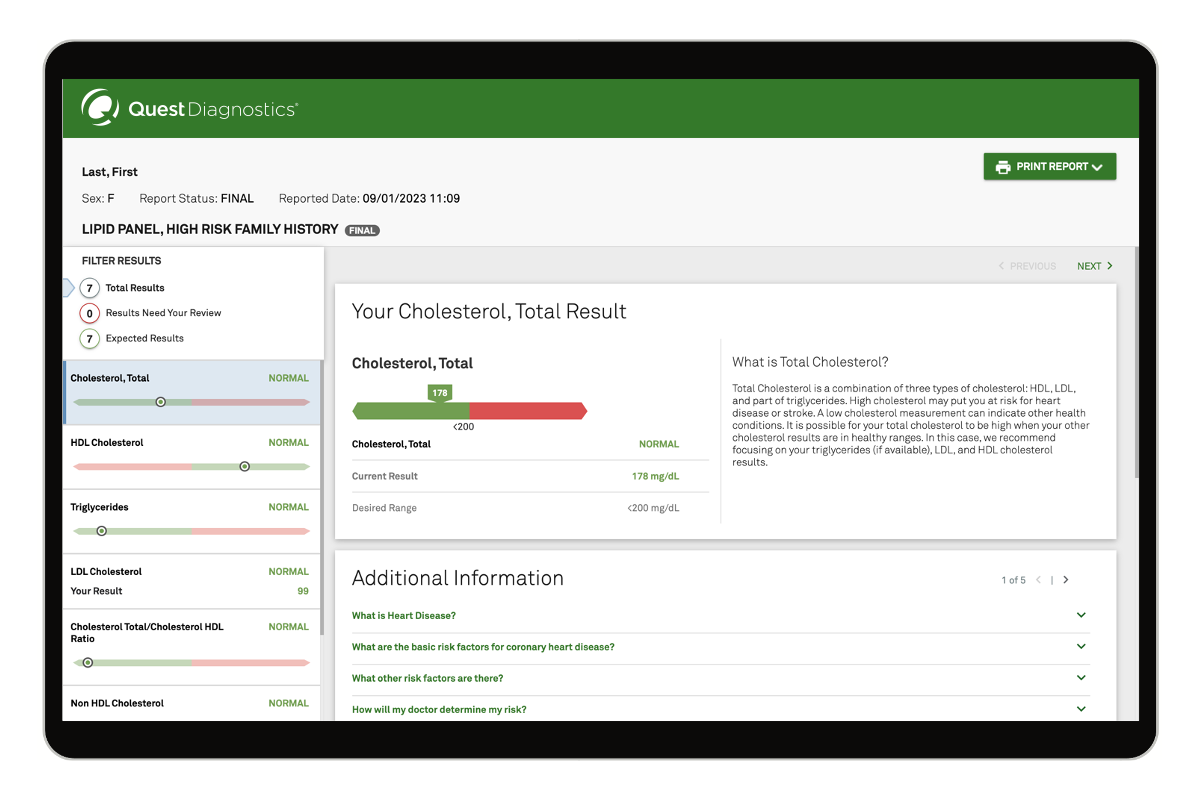High-Risk Heart Health Lipid and Lp(a) Panel
Detect if you have high levels of cholesterol and/or Lp(a). Most people with high levels of cholesterol and lipoprotein(a) don't have any symptoms and don't know they are affected. Use these results to have an informative discussion with your healthcare provider to determine next steps. Read moreThis panel is an extended lipid panel that measures total cholesterol, triglycerides, HDL cholesterol, LDL cholesterol (calculated), cholesterol/HDL ratio (calculated), non-HDL cholesterol (calculated), and lipoprotein(a) to determine your risk for heart attack, heart disease, stroke, and other diseases of the blood vessels for those with a history of premature ASCVD not explained by major risk factors.
If the results show you have higher than normal levels of cholesterol, lipoprotein(a), or other abnormal results, you and your healthcare provider can work together to determine next steps.
How it works
Cholesterol travels through the bloodstream on particles made of protein and fat (lipoproteins).
Good cholesterol (HDL), bad cholesterol (LDL), and lipoprotein(a) are all lipoproteins that carry cholesterol throughout the body.
Lipoprotein(a), in short Lp(a), is referred to as “genetic” lipoprotein. Lp(a) is an LDL-like particle with an added second protein, apo(a), which acts similarly to a patch of “Velcro” on an LDL particle. It is considered a very “sticky” lipoprotein particle because of the function of the added protein.
Atherosclerotic plaques cause blood vessels to harden and narrow. This restricts the blood flow and oxygen supply to organs. It also increases the risk of blood clots forming. These clots can block the flow of blood, causing heart attack, heart failure, peripheral artery disease or stroke.
Many people may not know they have atherosclerosis because there may not be symptoms. But it can eventually cause problems that are life-threatening. So, it’s important to be aware of cardiovascular disease risk factors and how to manage them.



